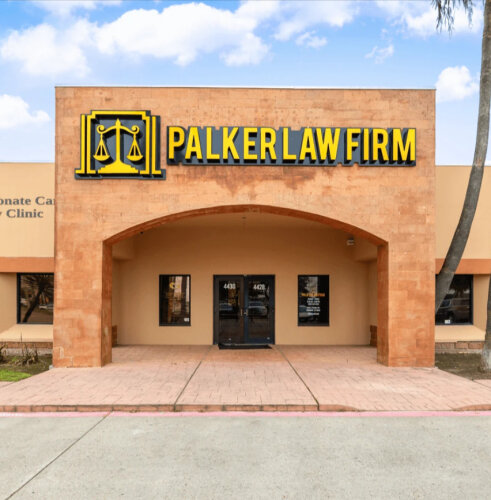Best Travel Accident Lawyers in Edinburg
Share your needs with us, get contacted by law firms.
Free. Takes 2 min.
List of the best lawyers in Edinburg, United States
About Travel Accident Law in Edinburg, United States
Travel accident law covers legal rights and responsibilities when someone is injured or suffers loss while traveling. In Edinburg, Texas, travel accidents commonly include motor vehicle collisions, rideshare incidents, bus or commercial carrier crashes, train incidents, and airplane or airport injuries. Legal issues arising from these accidents typically involve negligence, insurance coverage, damages for injury or death, government-entity claims if a public vehicle or road defect is involved, and federal regulatory issues when commercial or air carriers are involved.
The basic legal framework in Edinburg follows Texas state law for personal injury and negligence claims, supplemented by federal laws and regulations when commercial carriers or interstate travel are involved. Local law enforcement, county courts, and state agencies play important roles in investigation, report handling, and the claims process.
Why You May Need a Lawyer
Travel accidents can create complex legal and practical problems. You may need a lawyer when:
- You suffer serious physical injury or death in the accident, and you need help proving fault and calculating damages.
- The other party disputes liability or blames you in whole or part.
- The case involves commercial carriers, public entities, or federal jurisdiction where special rules and notice requirements apply.
- Insurance coverage is unclear, insufficient, or the insurer refuses fair compensation.
- You face complicated medical liens, wage loss claims, long-term disability issues, or future care needs that must be estimated and documented.
- You need help preserving evidence, gathering expert testimony, or navigating the court system and deadlines.
Local Laws Overview
Key local and state legal aspects that affect travel accident claims in Edinburg include:
- Negligence Standard: Texas uses negligence principles to determine fault. A plaintiff must generally show the other party owed a duty, breached it, and caused damages.
- Modified Comparative Fault: Texas follows a modified comparative-fault rule. If you are 51 percent or more at fault, you cannot recover damages. If you are 50 percent or less at fault, your recovery is reduced by your percentage of fault.
- Statute of Limitations: For most personal injury and travel-accident claims in Texas, you generally have two years from the date of the injury to file a lawsuit. Wrongful-death claims also typically must be filed within two years. Strict deadlines and exceptions can apply.
- Auto Insurance Requirements: Texas minimum liability coverage is commonly written as 30/60/25 - that is, $30,000 bodily injury per person, $60,000 bodily injury per accident, and $25,000 property damage per accident. Uninsured and underinsured motorist coverage is optional unless required by contract or lender.
- Government Entity Claims: If a government vehicle, city roadway defect, or public employee is involved, special notice requirements, shorter deadlines, and immunity issues can apply. You may need to file a written notice of claim within a limited time and comply with procedural rules before suing.
- Commercial Carriers and Federal Rules: Accidents involving interstate bus lines, trucking companies, railroads, and airlines may involve federal regulations, preemption doctrines, or statutory schemes that affect liability, damages, and forum. Federal agencies like the Federal Motor Carrier Safety Administration and Federal Aviation Administration may get involved in investigations.
- Crash Reports and Law Enforcement: For auto accidents involving injury, death, or significant property damage, law enforcement will normally prepare a crash report. Drivers must report certain accidents to the Texas Department of Public Safety when required. Crash reports are often used as evidence in claims.
Frequently Asked Questions
What should I do immediately after a travel accident in Edinburg?
Prioritize safety and medical care. Call emergency services if needed, get medical attention even for minor injuries, and report the crash to police so there is an official record. Collect identifying information from other drivers and witnesses, take photos of the scene and injuries, note weather and road conditions, and preserve damaged property. Notify your insurer but avoid giving recorded statements until you have legal advice if the injuries are serious.
How long do I have to file a lawsuit after a travel accident?
In most personal injury and wrongful-death cases in Texas, you generally have two years from the date of the injury or death to file suit. There are exceptions and tolling rules, especially for claims against government entities or when the injured person is a minor, so consult an attorney promptly to protect your rights.
Can I recover if I was partly at fault for the accident?
Yes, Texas follows a modified comparative-fault rule. You can recover damages if you are 50 percent or less responsible, but your award will be reduced by your percentage of fault. If you are 51 percent or more at fault, you are generally barred from recovery.
What types of damages can I seek after a travel accident?
You may seek economic damages such as medical expenses, lost wages, and property damage, plus non-economic damages like pain and suffering and loss of enjoyment of life. In limited cases, punitive damages may be available if the defendant acted with malice or gross negligence. Calculating future medical needs and non-economic losses often requires expert input.
How does insurance coverage typically work for rideshare or commercial vehicles?
Coverage for rideshare drivers can be layered. A driver’s personal policy may provide limited coverage at certain times, while the rideshare company often provides contingent coverage when the app is active. Commercial carriers and buses usually have higher liability limits and may be subject to federal rules. Determining available coverage can be complex and may require investigation and legal help.
Do I have to give a recorded statement to an insurance adjuster?
No, you are not required to give a recorded statement to the other party’s insurer. Insurers often seek statements to limit liability or undermine claims. It is normally wise to consult a lawyer before providing a recorded statement, especially if you have significant injuries.
What if the accident involves a city or state vehicle or a roadway defect?
Claims against a city, county, or state agency are subject to special notice requirements and immunity defenses. You may need to file a written notice of claim within a short time after the accident and follow specific administrative procedures before filing suit. Missing these steps can bar your claim, so seek legal advice early.
How much will a lawyer cost and how are fees usually handled?
Many personal injury attorneys in the Edinburg area work on a contingency-fee basis, meaning they receive a percentage of the recovery if you win or settle. You should ask about the contingency percentage, who pays litigation costs, and what happens if you do not recover. Fee agreements must be in writing and comply with ethical rules.
How long does a travel accident case usually take to resolve?
Case length varies widely. Minor claims may settle in a few months. Complex cases involving serious injuries, disputed liability, or multiple parties can take one to several years, especially if litigation and appeals are necessary. Your lawyer can give a time estimate based on the facts of your case.
How do I choose the right lawyer for my travel accident case?
Look for attorneys with experience in travel-accident and personal injury law, trial experience if necessary, and familiarity with local courts and procedures. Ask about their track record, typical case outcomes, client references, and communication practices. A good attorney will explain your options, likely outcomes, and fee structure clearly.
Additional Resources
Below are local and national agencies and organizations that can offer information, records, or assistance:
- Edinburg Police Department - for accident reports and investigations.
- Hidalgo County Sheriff’s Office and Hidalgo County District Clerk - for filings and court records.
- Texas Department of Public Safety - for state crash reports and investigations.
- Texas Department of Transportation - for roadway safety information and reporting dangerous road conditions.
- Texas Department of Insurance - for questions or complaints about insurance companies and coverage.
- State Bar of Texas and Hidalgo County Bar Association - for attorney referral services and lawyer disciplinary information.
- Federal Motor Carrier Safety Administration - for issues involving interstate commercial trucks and buses.
- Federal Aviation Administration and National Transportation Safety Board - for aviation incidents and safety investigations.
- Local hospitals and medical providers - for treatment and records that document injuries.
Next Steps
If you need legal assistance after a travel accident in Edinburg, consider the following step-by-step approach:
1. Seek medical attention immediately and follow the provider’s instructions. Document all treatment and keep copies of medical records and bills.
2. Report the accident to local law enforcement and obtain the official crash report number if available.
3. Preserve evidence - photos, witness contact information, damaged property, and any surveillance footage if possible.
4. Notify your insurance company as required, but avoid detailed or recorded statements before consulting a lawyer if injuries are significant.
5. Contact an experienced travel-accident or personal injury attorney for a consultation to evaluate liability, damages, and deadlines. Bring medical records, photos, the crash report, and insurance information to the meeting.
6. Follow your attorney’s advice about interacting with insurers, medical providers, and potential settlements. Keep a detailed injury and expense diary to document your losses and recovery progress.
7. If the case involves a government entity or federal carrier, act promptly to meet special notice requirements and preserve legal remedies.
8. Consider alternative dispute resolution, such as mediation, if recommended by your attorney, while preparing for litigation if fair settlement is not reached.
Getting prompt legal advice can protect your rights, preserve evidence, and improve the chances of a full recovery for damages. An attorney familiar with Edinburg and Texas law can guide you through the process and explain options tailored to your situation.
Lawzana helps you find the best lawyers and law firms in Edinburg through a curated and pre-screened list of qualified legal professionals. Our platform offers rankings and detailed profiles of attorneys and law firms, allowing you to compare based on practice areas, including Travel Accident, experience, and client feedback.
Each profile includes a description of the firm's areas of practice, client reviews, team members and partners, year of establishment, spoken languages, office locations, contact information, social media presence, and any published articles or resources. Most firms on our platform speak English and are experienced in both local and international legal matters.
Get a quote from top-rated law firms in Edinburg, United States — quickly, securely, and without unnecessary hassle.
Disclaimer:
The information provided on this page is for general informational purposes only and does not constitute legal advice. While we strive to ensure the accuracy and relevance of the content, legal information may change over time, and interpretations of the law can vary. You should always consult with a qualified legal professional for advice specific to your situation.
We disclaim all liability for actions taken or not taken based on the content of this page. If you believe any information is incorrect or outdated, please contact us, and we will review and update it where appropriate.










